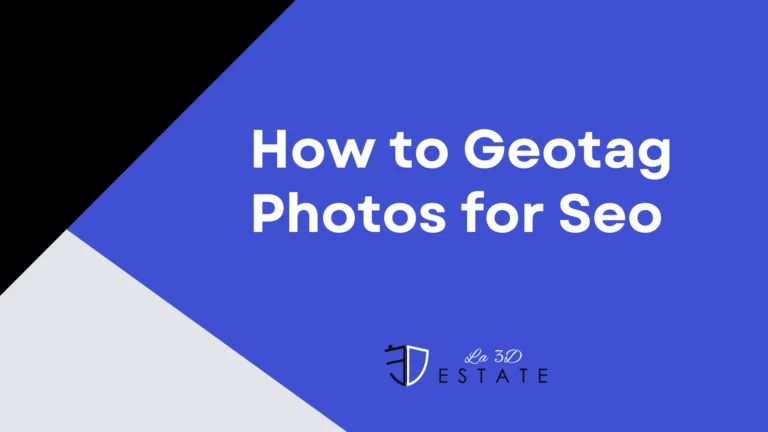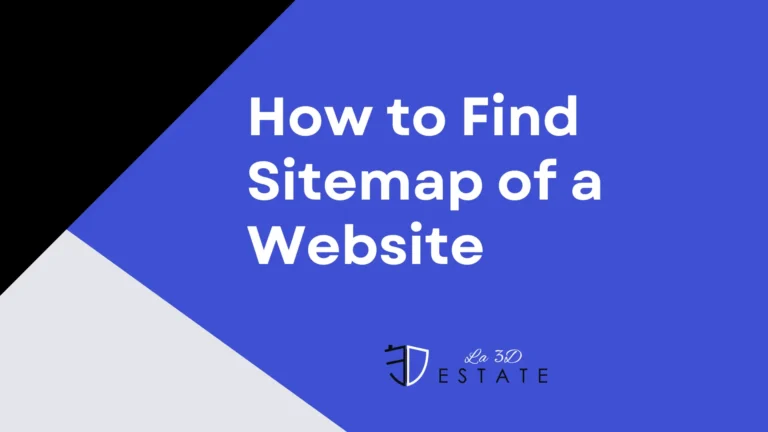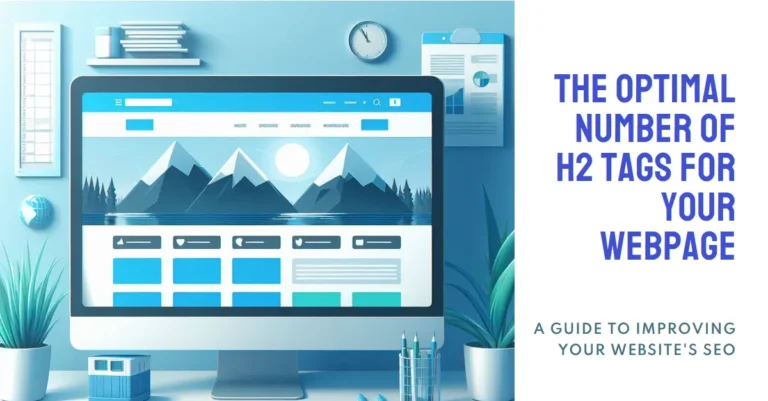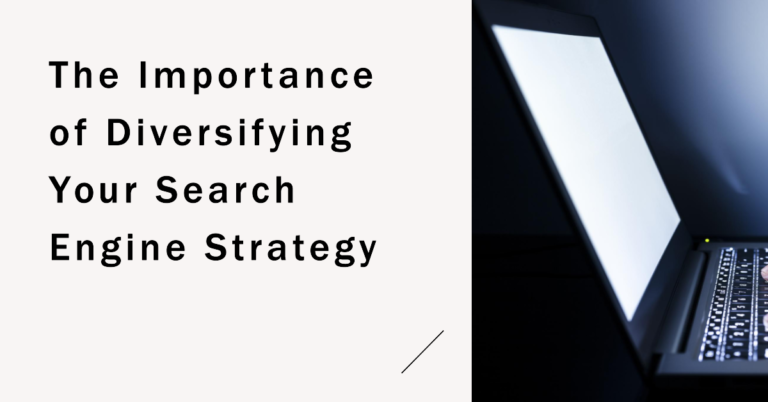When you search for something on the internet, your search engine will take into account various factors to determine which pages are best suited to show up in the results. One of these factors is on-page SEO, or the optimization of a website’s content for search engine ranking.
On-page SEO is important for two main reasons: first, it helps your website rank higher in search results; and second, it helps you attract more web traffic, converts more leads into customers, and increase your bottom line. Today I will explain the basics of on-page SEO and help business owners understand its importance to their business.
By understanding how on-page SEO works and its various elements, you can start implementing strategies that will help your website rank higher in search results and improve your web traffic totals!
What is On-Page SEO?
Businesses of all sizes are looking for ways to grow their revenues and reach new heights. One effective way to do this is through on-page SEO. On-page SEO is the practice of optimizing your website on-page data to improve your ranking in search engines. This can help you drive more traffic to your site and generate leads for your business.
There are many different ways to do on-page SEO, so it’s important to choose the approach that works best for your business. By optimizing your website on-page data, you can increase your chances of ranking higher on search engine results pages (SERPs).
This, in turn, can help you attract more customers and grow your business at a much faster rate!
Why is On-Page SEO Important?
On-page SEO is one of the most important aspects of website optimization. It’s responsible for helping your website rank higher in search engine results pages.
This in turn results in increased traffic and better visibility for your business. In order to achieve the best results, you need to use a variety of methods that are specifically tailored to your business.
There are many different optimization techniques out there, so it’s important to research and choose the right ones for your website. By doing so, you can ensure that your website is ranking high and attracting the right kind of traffic.
Main Types Of On Page SEO
SEO is one of the most important aspects of any business’s online presence. It can help your business grow faster by increasing web traffic, improving search engine ranking, and driving more website visitors to your site.
In this blog post, I will discuss the main types of on-page SEO and how they can help your business. First off, let’s take a look at keyword research. When planning your SEO strategy, it’s essential to know what keywords to target and what search engine ranking your site should aim for.
After keyword research is complete, you need to focus on optimization. Optimization refers to all the measures you take to make your site as search engine friendly as possible.
This includes things like title tags, meta tags, keyword density, and alt tags.
If you are not sure how to go about optimizing your site, you should contact us and we can help you to grow faster. Meanwhile, lets go over different types of On-Page SEO tactics
Use Your Target Keyword In The First 100 Words
Keyword research is essential for any content marketing strategy, but it’s especially important when targeting search engine optimization (SEO) purposes.
Too many keywords can often lead to unnatural search results and decreased website visibility. To avoid ranking lower than your competitors, make sure you add internal links to other pages on your website that are related to the target keyword as well as include your target keyword in the first 100 words of content on your site.
Make sure the title and meta description accurately reflect what people will find on page 2-3 of their Google search results!
H1 Heading Tags
H1 tags are an important part of content optimization. They play a major role in helping search engines and web users to find the content on your page more easily. By using keyword rich text, you can draw attention to your heading as well as promote the title of the post below it.
In addition, make sure that all your H1 tags are high-quality and keyword-rich so that search engine bots can properly parse them and index them effectively. Finally, be sure to measure results regularly so that you can tweak what works best for your website’s traffic ranking
Title Tag
Title tags play an important role on web pages and can help you rank higher in search engine results. By keyword research and choosing the right terms, you can ensure that your website content is easily found by potential customers. title tags are typically placed at the top of a page, just under the meta description tag, so it’s important to make sure they are accurate and keyword-rich.
A title tag should be around 75-100 characters long but shouldn’t contain too many keywords as this will lower its ranking on search engines
Meta Description
Meta description is the short, keyword-rich description that appears below your website title and header in search engine results pages. It’s important to make sure your meta description is keyword rich so that it shows up on page one for relevant keywords.
By doing this, you can attract more web visitors who are looking for information on those topics.
Image Alt tags
Image alt tags are also an important part of search engine optimization (SEO). They are the text that appears underneath a web page’s image banners.
To make sure your images rank higher on SERPs, make sure they’re high quality and use keywords throughout the alt tag text. Additionally, make sure it is relevant to the content of the image itself. For example, if you have an article about gardening tips, include keyword-rich alt tag text such as “garden tips: Tips for growing healthy plants” beneath images of plants in bloom.
Doing this will help users find what they’re looking for more quickly on your website and boost click-through rates (CTR) accordingly.
URL Structure
When it comes to content marketing, one of the most important aspects is making sure your URLs are keyword rich. This will help ranking on search engine results pages (SERPs) and encourage people to click through to read your content.
Your URL structure should also include a main keyword-rich phrase followed by a catchy page title that captures the target audience’s attention. It’s best practice to use keywords in both the text of your site and in title tags, meta data, etc., so you can make sure everyone who visits knows what they’re looking for!
Structure Data
Structure data is code that helps search engine robots to better understand the content on your page. By applying appropriate structure data on your website page, you can improve your ranking in search engines and attract more web visitors.
There are many available tools that allow you to easily add structure data on your website. Once it’s added, this code will help index and tag your pages accurately for faster loading times. Additionally, search engine crawlers will also take notice of the tags and include them in their results when searching for relevant information on those topics.
Optimize for user as well
Making sure your website is easy to use and navigate is one of the most important factors in optimising it for user experience.
Visitors should be able to find what they are looking for quickly and easily, without having to search through long pages of content or clicking on irrelevant links. This will help them stay on your site longer, which in turn leads to conversions and increased ROI.
Internal Linking
Internal linking is the process of linking from one page of your website to another, within your website.
This helps you rank higher in search engine results pages (SERP), by improving the visibility of your site. In addition, internal links are a great way to pass on the backlink juice that you got from another website to your whole website – amplifying its impact even further.
To ensure optimal link-building and ranking results, use a tool like SEMrush to measure how well your site is performing with internal links. This will help you identify any areas where optimization can be done for better PageRank and organically-generated traffic growth.
No Duplicate Content
When it comes to website content, one of the most important rules is that everything on the site should be original.
This means avoiding any content that has been copied from other sources – even pages on your own website can count as duplicate content.
Google may penalize your search engine ranking for this type of indiscretion, which could lead to lost traffic and revenue. So make sure you’re not unintentionally committing duplicate content penalties with every page you publish!
Outbound Link If you can
Outbound link building is one of the most effective content marketing strategies because it helps you connect with high-quality websites that are relevant to your niche.
By creating valuable content and promoting it on these sites, you’ll gain links that will help improve search engine ranking and better visibility for your website.
Page Speed
Page speed is one of the most important factors to consider when designing and building a website. A slow-loading site can frustrate users, leading them to bounce off or search for alternate pages.
This ultimately reduces pageviews and leads to lower search engine ranking results. Even if your web developer has already optimized your website for better optimization, there are still many things you can do on your own – like installing caching plugins etcetera – that will speed up the load time even more.
Best practice dictates that you should contact your web developer about any optimizations that need to be made as part of SEO; after all, their knowledge and experience should far outweigh anything you could achieve on your own!
In short: making sure page speed is an essential factor in ranking high in search engines is critical for online success.
No Keyword Stuffing
Keyword stuffing is when you include too many keywords on a page without optimizing it for user reading. The result is that your page will be hard to read and search engine optimization (SEO) efforts will be lost.
Instead, make sure to optimize your content for both user reading and search engine ranking through keyword research. Google Panda update removed many of the website from search results which was using keyword stuffing.
Look at what people are searching for on related queries, target the right keywords within those queries, and add them appropriately to your content. This way, not only will you improve SEO but also ensure that users can easily understand and find what they’re looking for on your website
Why Is On Page SEO So Important For Businesses?
For businesses, on-page SEO is crucial for a few reasons. First of all, it can help increase the number of conversations that your business is having. This is because high-ranking results on Google can lead to more traffic and leads, which can in turn help your business grow faster. Second, on-page optimization can help you rank higher in search engine results pages (SERPs).
This can result in increased visibility, more clicks, and more business. And finally, on-page optimization is important for businesses because it helps them build a better online reputation.
By ranking high on search engine results pages (SERPs), businesses can build trust and credibility with potential and current customers. So, if you’re looking to improve your website’s optimization and ranking, on-page SEO is a great place to start.
How to Improve On Page SEO for Your Business
On-page SEO (search engine optimization) is one of the most important aspects of online marketing. It’s the practice of optimizing a website to improve its ranking on search engine results pages (SERPs).
By improving your on-page SEO, you can increase your website’s traffic and conversions, and boost your business growth. Here are some tips on how to optimize your website for on-page SEO:
-Optimize your website content using keywords.
-Use title tags and meta tags to help search engine crawlers identify and understand your content.
-Add compelling images to your website to help increase your ranking on search engine results pages.
Contact us to have our team of on-page SEO experts optimize your website for you. We will take care of everything, so you can focus on managing your business.
To Conclude, On-page SEO is an important factor in ranking a website high on search engine results pages. By optimizing your website content and webpages for search engine ranking, you can encourage more people to find and visit your website. In addition to ranking higher on search engine results pages, on-page SEO can also help to improve your website’s overall ranking. Make sure to read through this blog post to learn more about the different ways that on-page SEO can help your business grow faster!










